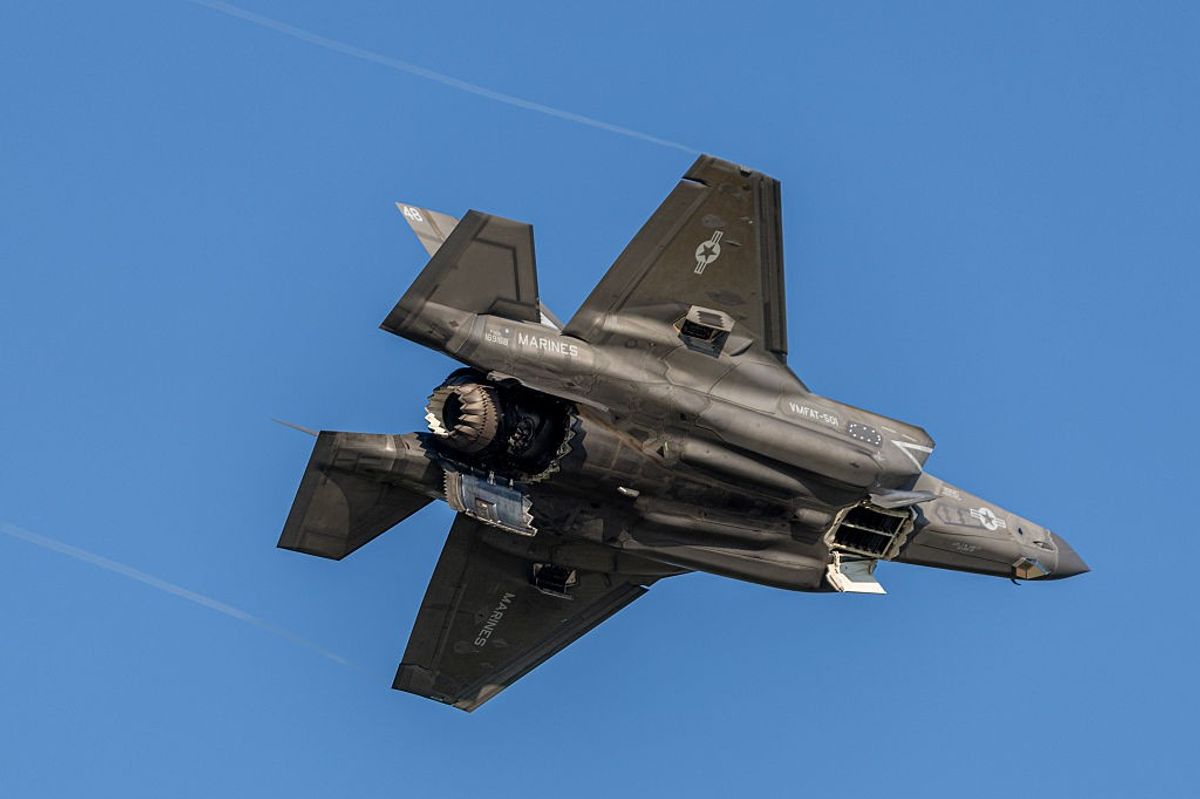OPINION — On May 9, U.S. President Joseph Biden was expected to host his Turkish counterpart, President Recep Tayyip Erdogan, for an official visit in Washington D.C. But the visit, which has been something not only Erdogan, but many Turks have been waiting for since Biden’s election in 2020, never took place. Instead, in late April, after several Turkish media outlets reported that Erdogan was cancelling his visit, Turkish officials announced that Erdogan was “postponing his trip indefinitely” - diplomatic speak for “canceling the visit.” And while Erdogan’s “non-visit” received little attention in the U.S. media, Turkish newspapers and news programs have been filled with questions and theories about who, in fact, called off the visit, and why?
One theory circulating among those who track U.S.–Turkish relations is that Erdogan himself canceled the visit given his anger over Israel’s military operations in Gaza and his belief that the U.S. is fueling the war by providing the Israelis with weapons and diplomatic support. (Erdogan has refused to refer to Hamas as a terrorist organization and instead characterizes the group as a “liberation movement”.) Initial news of Erdogan’s planned visit to the U.S. came before Turkiye’s March 2024 municipal elections and may have been designed to bolster the image of Erdogan and his Justice and Development Party (AKP) in the runup to the elections, given Erdogan’s desire to promote himself as a respected world leader who is a welcome guest in capitals of important foreign countries. However, there has been some speculation that his planned visit to the U.S. may have actually hurt his party during the municipal elections, because Islamic voters angered by Israel’s alleged mistreatment of the Palestinian people decided to give their votes to the conservative Turkish Islamic YPK (New Welfare Party), which adopted an even harder line on Israel than Erdogan himself. Thus, some analysts assess that following the election results, which saw the AKP lose important ground, Erdogan decided to do more to placate anti-Israel sentiment in Turkiye by canceling the visit to Washington.
But Erdogan has long sought an invitation from his American counterpart for an official visit to Washington (or visit by the U.S. President to Turkiye) and it is hard to believe that Erdogan would have given up the opportunity to be received by President Biden at the White House, further promote his image as a world leader, and attract much needed U.S. investment in the struggling Turkish economy.
Balancing act
In the past, Erdogan has demonstrated a pragmatic ability to disagree with Washington on some issues, while continuing to take steps designed to court U.S. investment and trade. For example, in the summer of 2023, after securing another term as Turkiye’s President, Erdogan selected a number of officials who are well respected in the U.S. and Europe to serve in key cabinet positions at the expense of those Turkish officials who were promoting closer ties between Ankara and Moscow.
Even though Erdogan has been very vocal in his criticism of Washington’s number one ally in the Middle East, Israel, and willing to publicly challenge the U.S. for its support for Israel after the 7 October 2024 Hamas terrorist attacks, this has not stopped the Turkish President from taking other steps designed to signal his desire for improved relations with the U.S. For example, Erdogan eventually agreed to support Sweden’s accession to the North Atlantic Treaty Organization (NATO) and in recent months he has made a concerted effort to improve ties with Greece. In early March, Erdogan sent his Foreign Minister to Washington to discuss several bilateral and multilateral issues with his U.S. counterpart, and in late April, Erdogan’s Finance Minister arrived in the U.S. to meet with U.S. officials and private investors as part of Ankara’s efforts to attract much needed investment in the Turkish economy. In the runup to the now “postponed” Erdogan visit, the Turkish President was reportedly preparing to travel to the U.S. with a delegation of up to 100 Turkish business leaders, and Erdogan himself planned on meeting with U.S. investors to promote improved trade relations.
Would the Turkish President have “postponed” his plans to travel to Washington solely based on disagreements between Washington and Ankara over the Israeli war in Gaza?
Other theories
According to an April 26 article in Al-Monitor, Erdogan’s decision likely stemmed from the White House’s failure to officially announce the Turkish President’s visit. Per the same article, when asked by a reporter about the visit, National Security Council Coordinator for Strategic Communications John Kirby replied that “there was nothing on the schedule to speak to in terms of a specific visit by President Erdogan”, a reply that Al-Monitor said angered Erdogan and his supporters, resulting in the Turkish President’s decision to cancel.
Another popular theory circulating among those who follow U.S.–Turkish relations is that it was the U.S. that had second thoughts about hosting Erdogan for a visit during such a sensitive and complicated time in U.S. domestic politics. According to this thinking, after agreeing to host Erdogan in Washington, the White House had second thoughts because of the flare-up of pro-Palestinian protests on university campuses across the U.S. With the Democratic National Convention approaching, and images of violent clashes between protestors and police on several college campuses being circulated by the media, it is possible that the President and his team decided that the risk of Erdogan arriving in the U.S. and making a public statement that might further inflame tensions between the pro-Palestinian progressive wing of the party and more traditional, centrist elements of the party that support Israel, were too great. In this reading, not wishing to directly call off the visit, the administration instead exploited Erdogan’s sense of pride by refusing to officially confirm the visit, thus subtly messaging the Turkish President that he was not welcome in the U.S.
If this was in fact the Administration’s “play”, it appears to have worked.
While many in the U.S. view Turkiye with skepticism and refer to the Turks as “Frenemies”, there is little doubt that the country is an important ally for the U.S. The Turks maintain the second largest military force in NATO after the U.S., control maritime access between the Black Sea and Mediterranean, enjoy (or suffer from) a geopolitical position that straddles Europe and the Middle East and leaves Turkiye as a border state to Iran, Syria and Iraq - and U.S.–Turkish trade ties have been and remain important for both countries. While Turkiye is seen as a difficult partner by the U.S. at times, having Ankara downgrade or break its ties with the U.S. would create significant problems for Washington and add a new set of problems to the U.S. national security agenda that Americans cannot afford to deal with in today’s already highly complex and dangerous international environment. Understanding this reality, it is often difficult to understand why the current administration seems intent on taking steps that risk further eroding the relationship with Ankara.
During the 2020 U.S Presidential elections, President Biden was caught on tape calling Erdogan an “autocrat” and stating that the U.S. should work with the Turkish opposition to defeat Erdogan at in future elections. These comments were received poorly not only by Erdogan, but by many Turks who have deep-rooted suspicions about Washington’s intentions towards their government and country. After his inauguration in January 2021, President Biden took months to call Erdogan, a delay which was also viewed by many Turks as an insult to their country. Washington has been seen as favoring Greece over Turkiye in bilateral disagreements between the two NATO allies, and continued American support for the Kurdish-dominated Syrian Democratic Forces (SDF) and Peoples Protection Units (YPG) and Biden’s decision to use the phrase “Armenian Genocide” in April 2021 are all policy decisions that have risked a further undermining of U.S.–Turkish bilateral relations, at a time when it would appear Washington needs more partners in the Middle East, Eurasia and in other regions of the world where U.S. influence is being challenged by Iran, Russia, and China.
Fortunately, to date U.S. actions have not led to Erdogan pulling further away from the U.S. and closer to Russia, which is an objective Vladimir Putin has been working towards for years. However, each time the U.S. takes an action that is viewed as harmful or insulting to Ankara, Americans need to understand that there is a risk that the administration may go too far, and consider the very serious consequences the U.S. will face if it loses its alliance with Ankara. As one Turkish journalist speculated after his government officially confirmed the postponement of Erdogan’s visit, while it is not clear how this news would further impact U.S.–Turkish relations, Putin and his allies were likely gleeful that the U.S appears to have mishandled another critically important diplomatic issue at such a critical time for U.S. National Security interests. The administration seems to be counting on the endless patience and pragmatism of Erdogan and the Turkish people. Americans should pray that the White House’ calculations vis-a-vis Ankara turn out to be correct and do not lead to a new set of serious foreign policy problems for their country.
The Cipher Brief is committed to publishing a range of perspectives on national security issues submitted by deeply experienced national security professionals.
Opinions expressed are those of the author and do not represent the views or opinions of The Cipher Brief.
Have a perspective to share based on your experience in the national security field? Send it to Editor@thecipherbrief.com for publication consideration.
Read more expert-driven national security insights, perspective and analysis in The Cipher Brief















